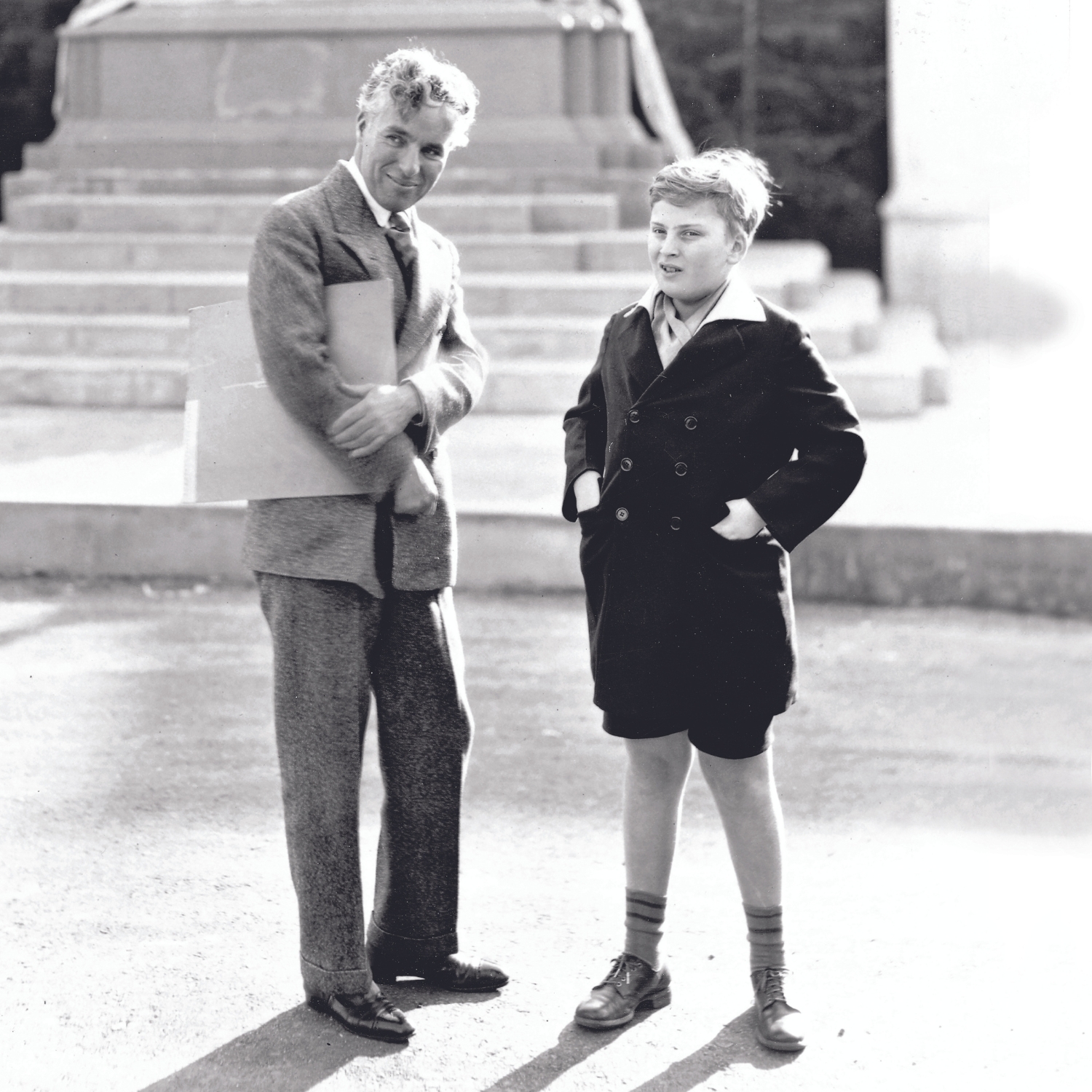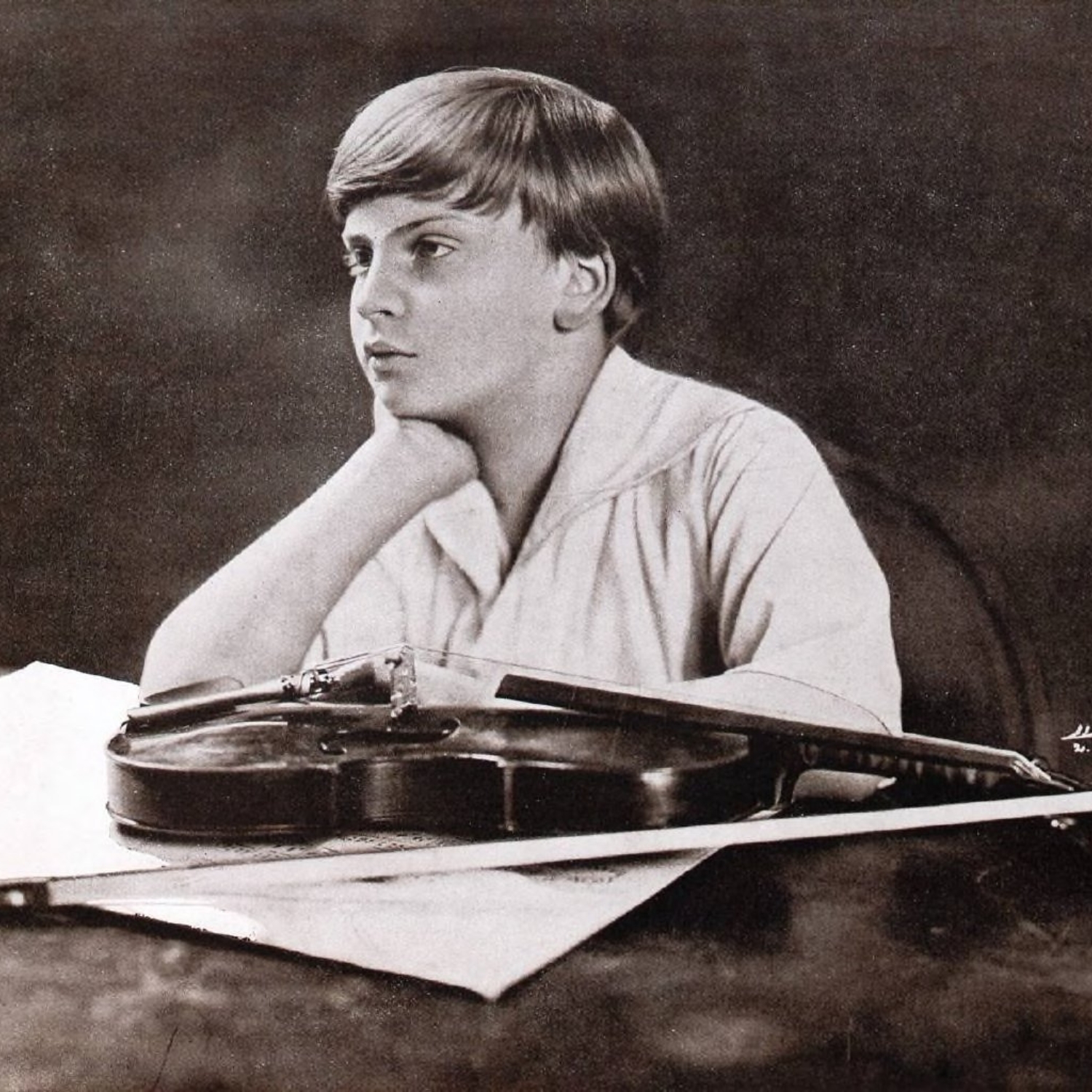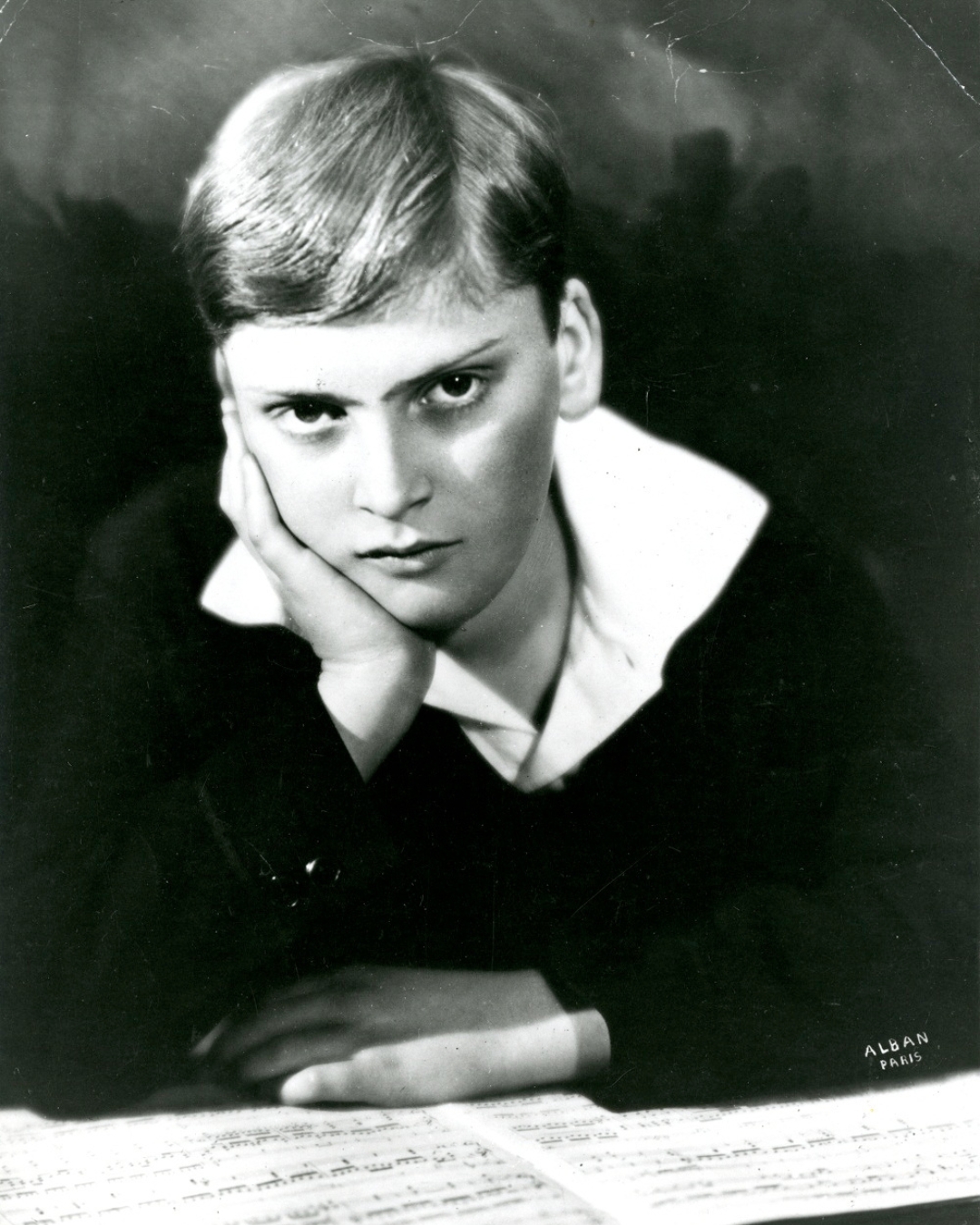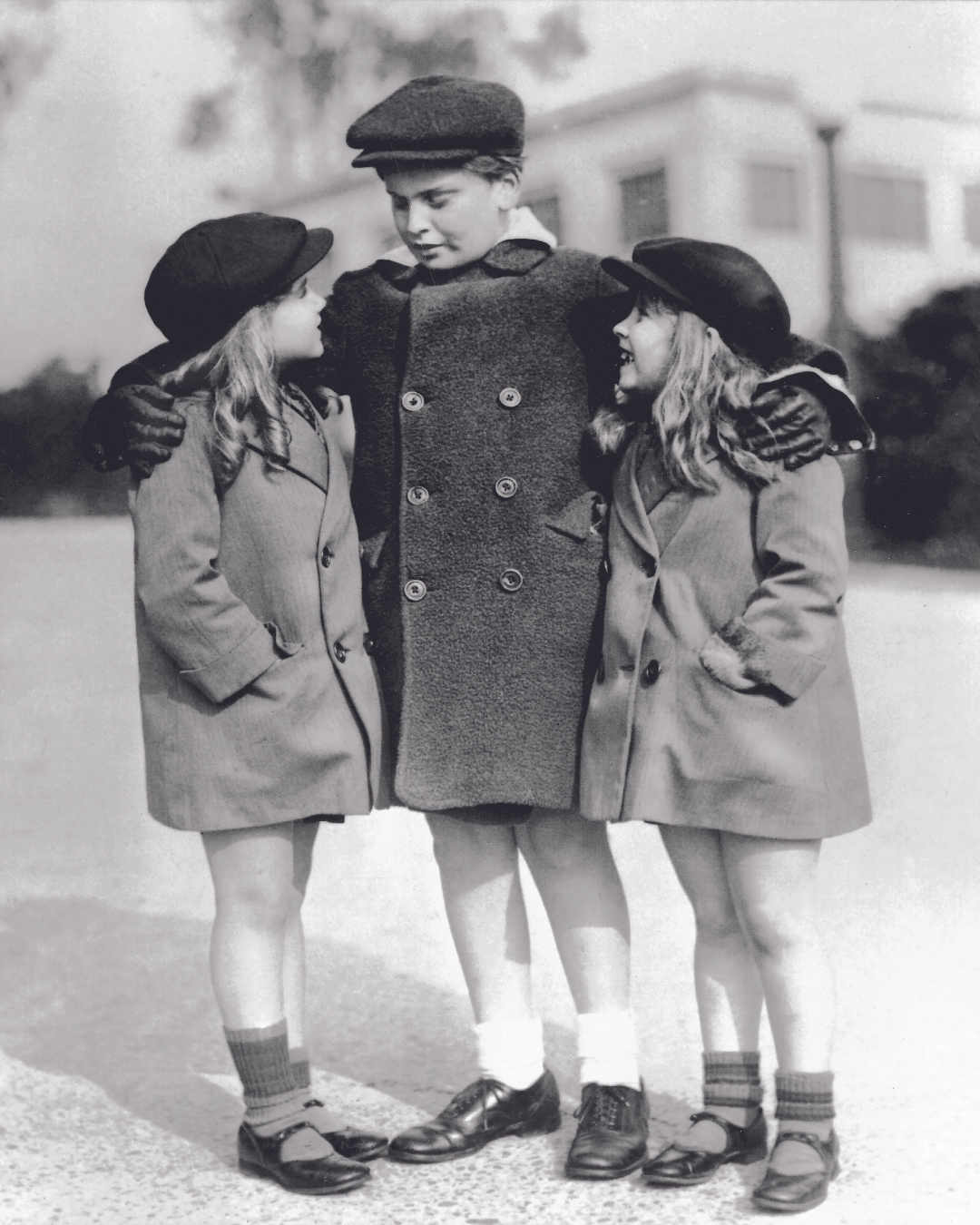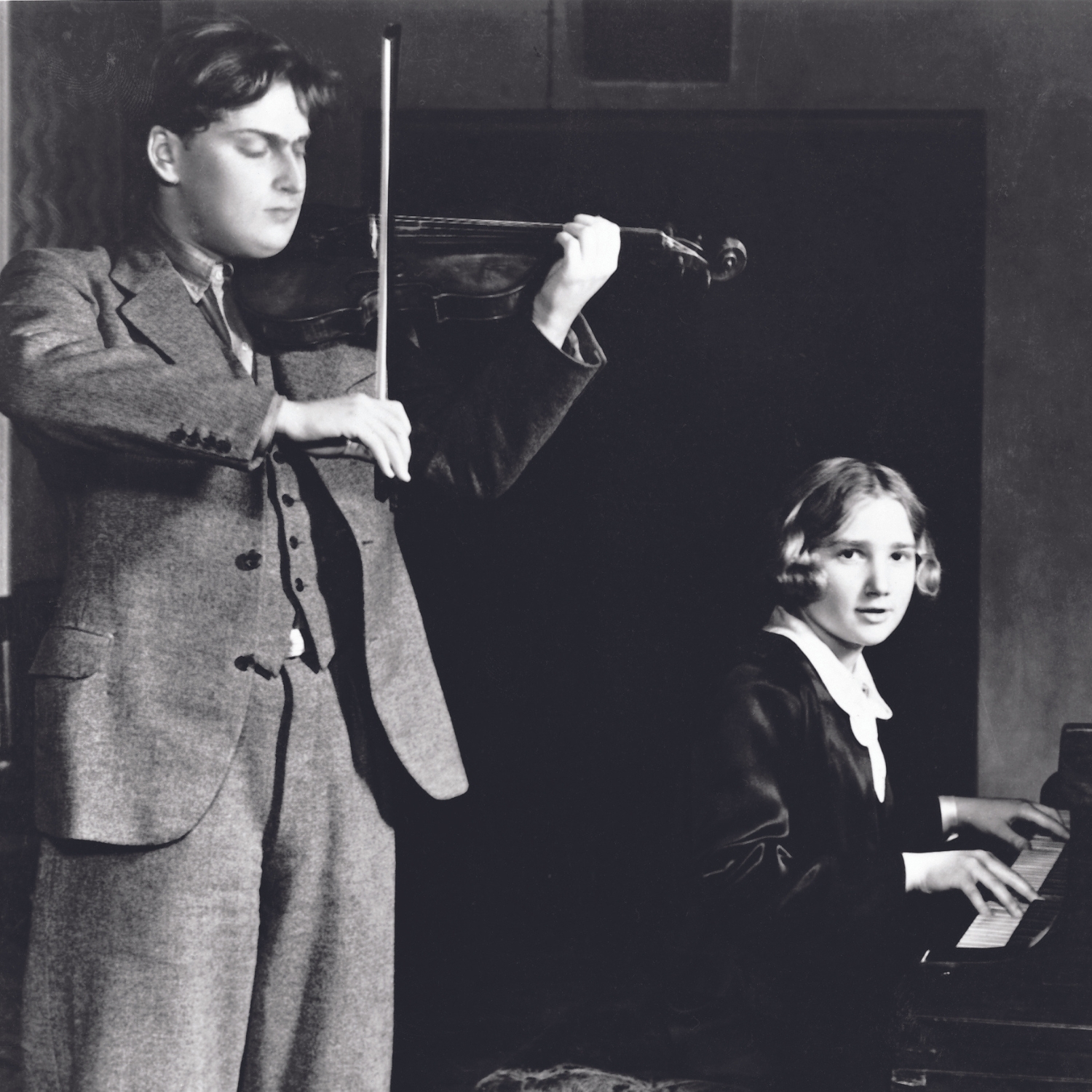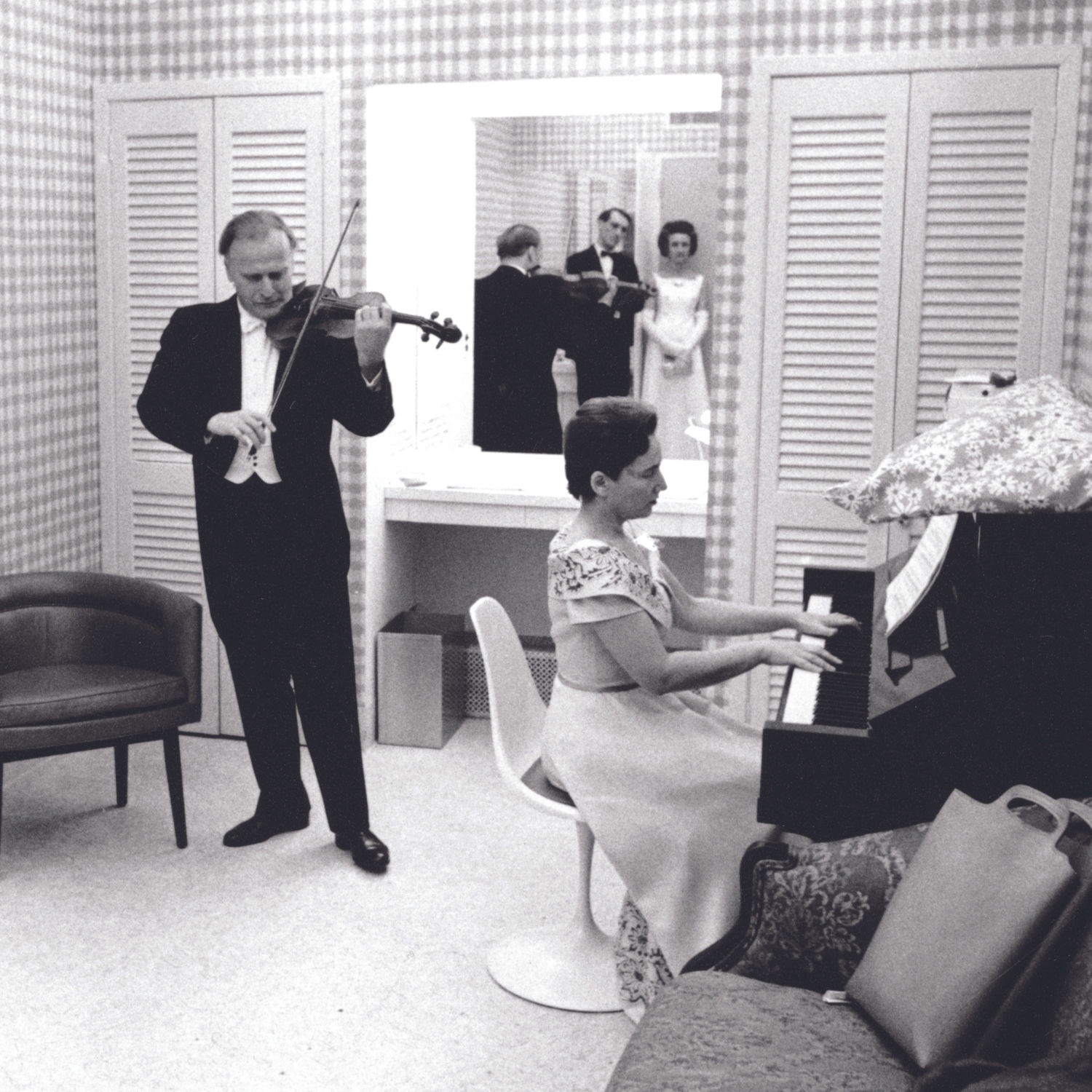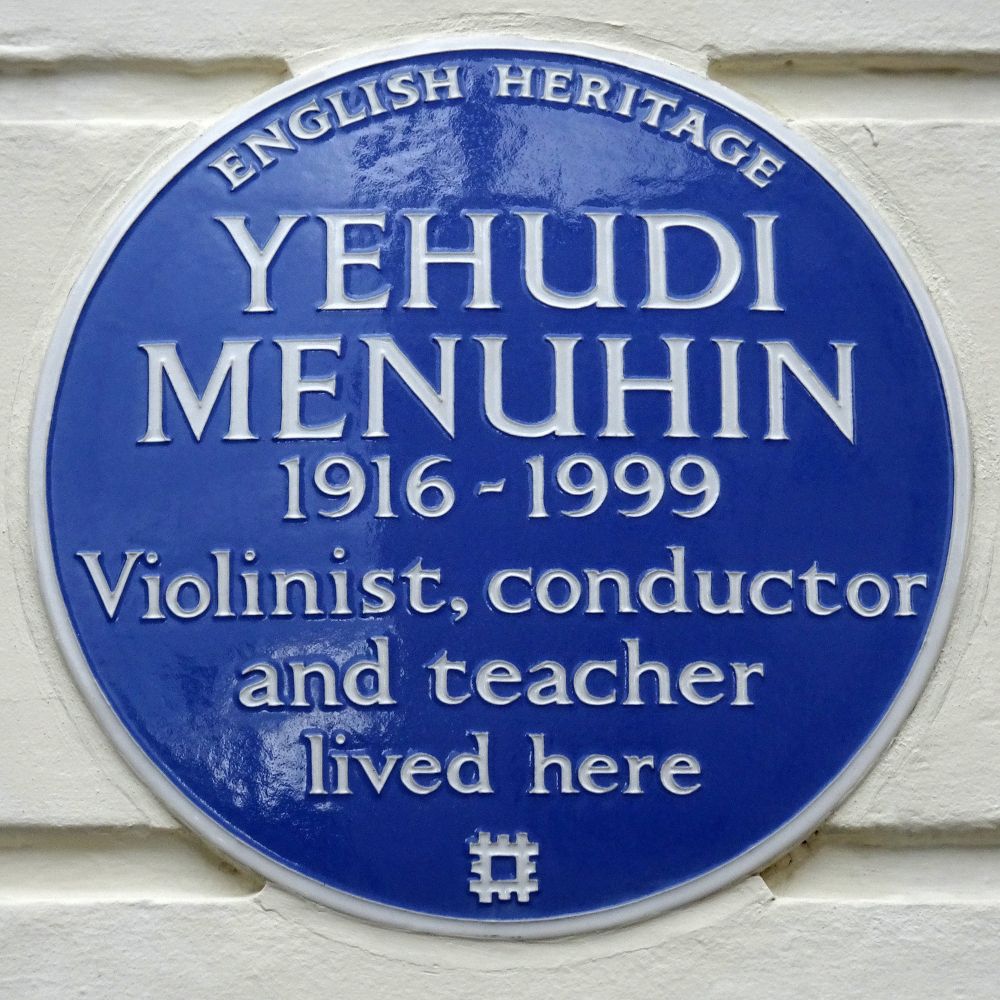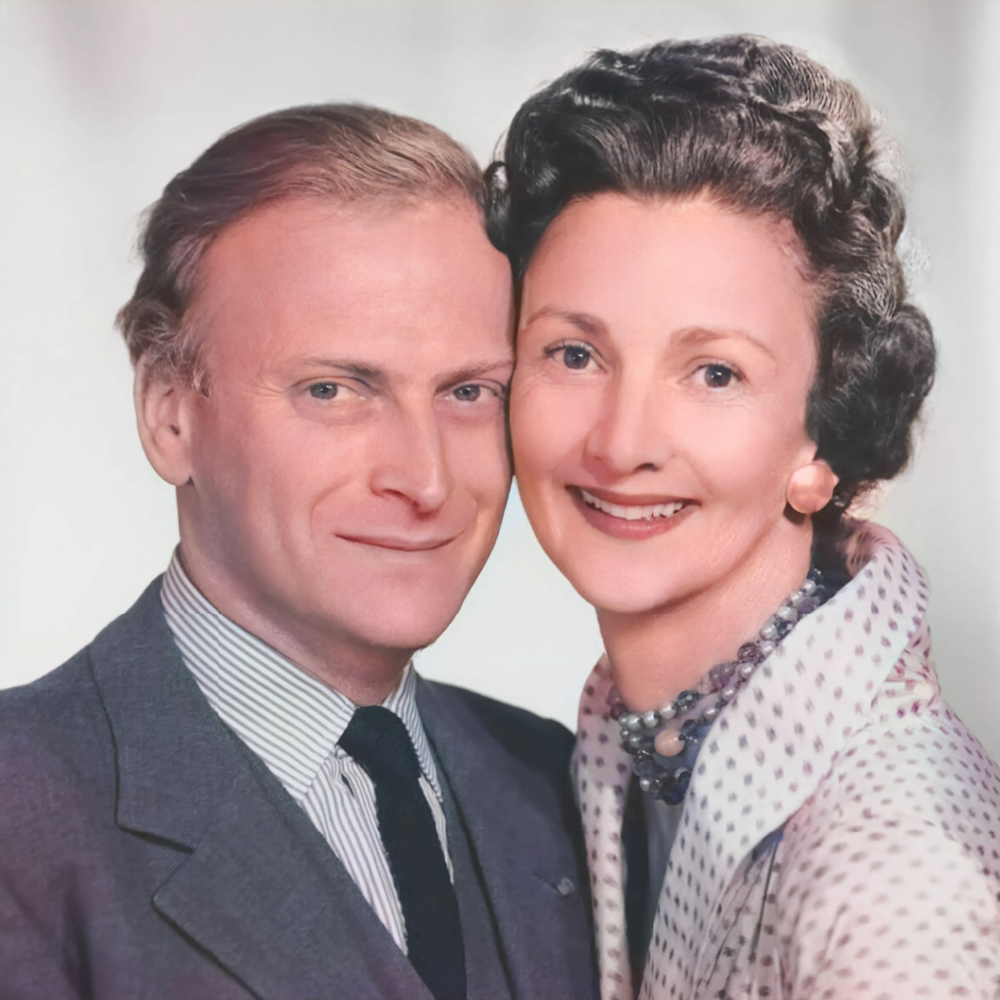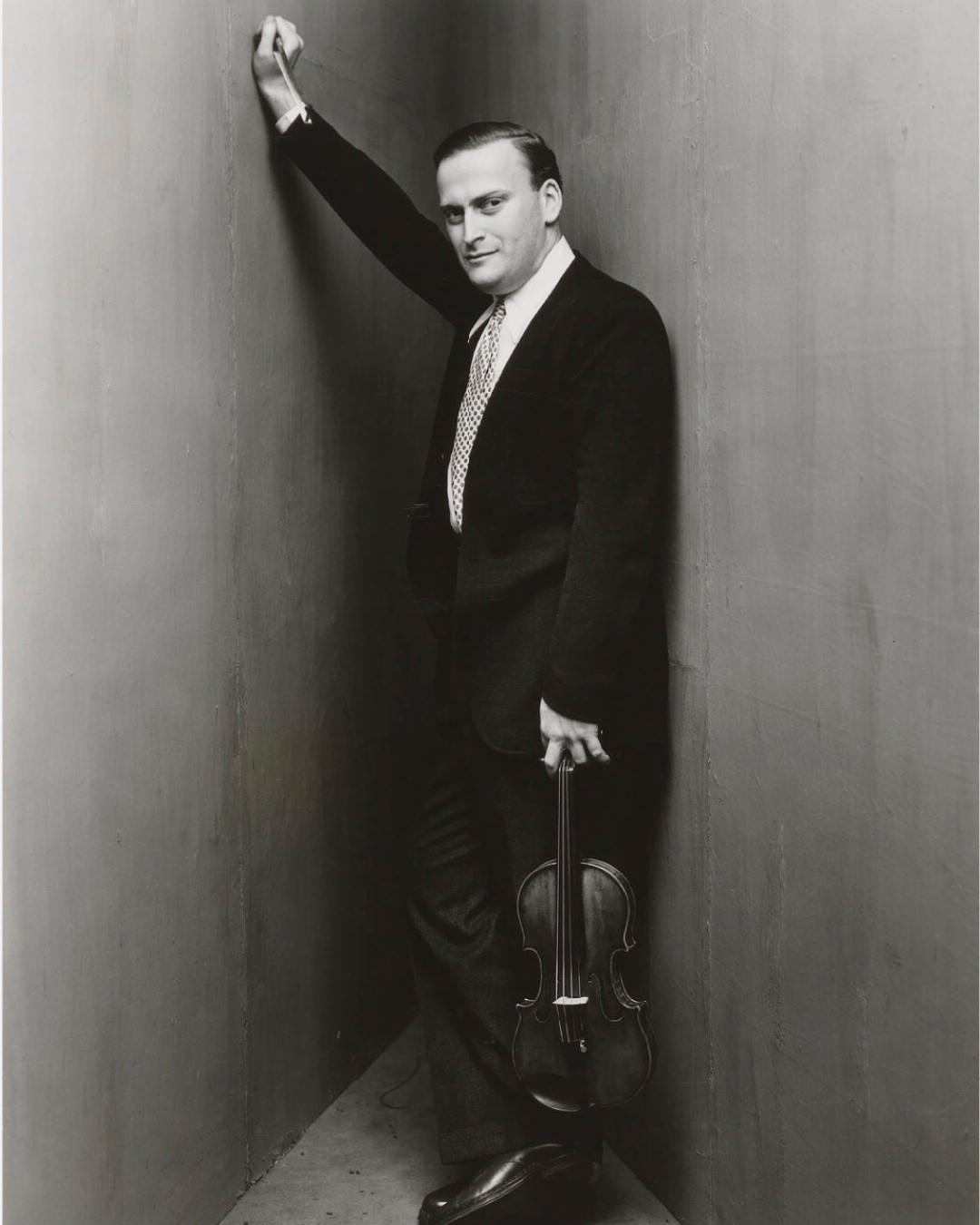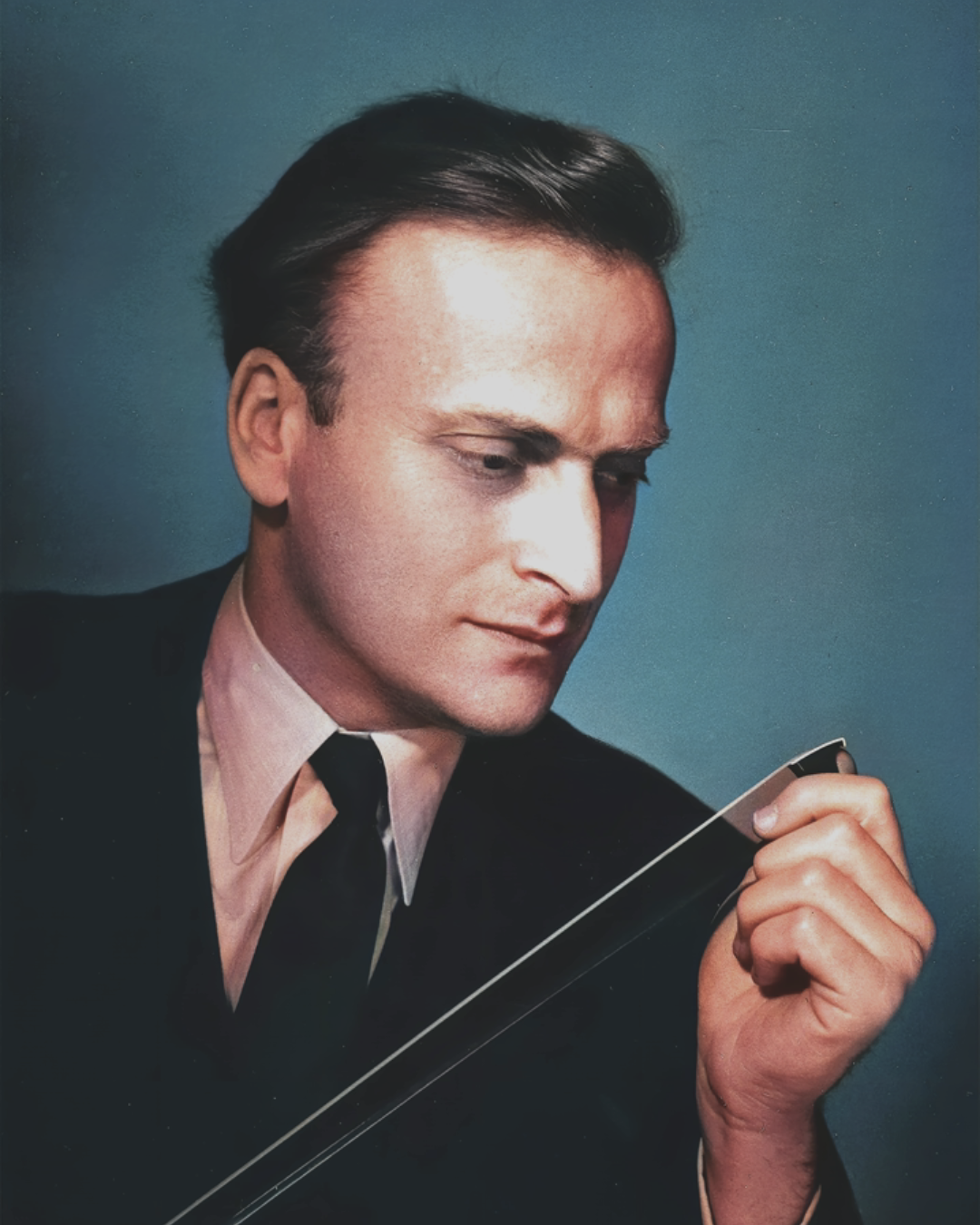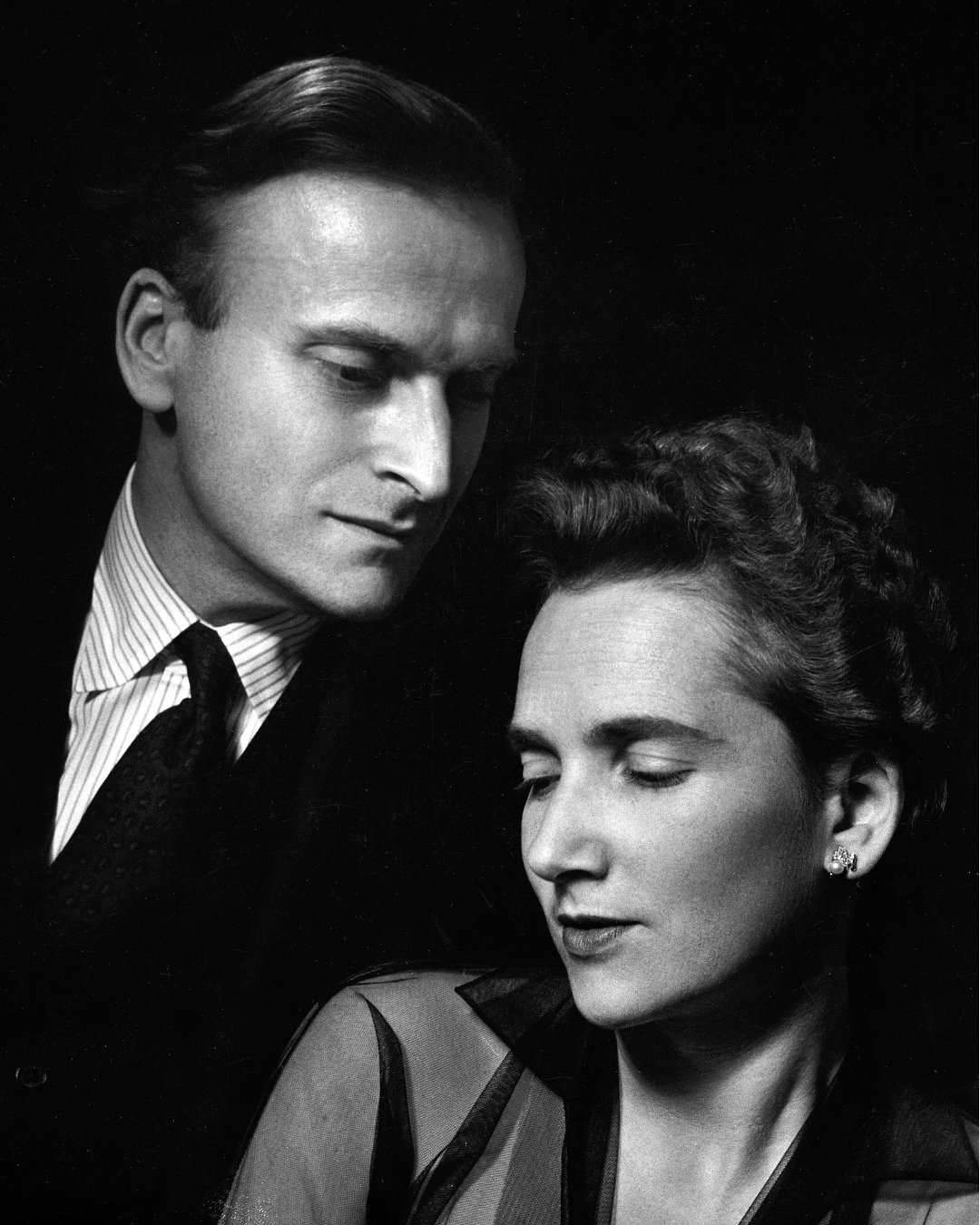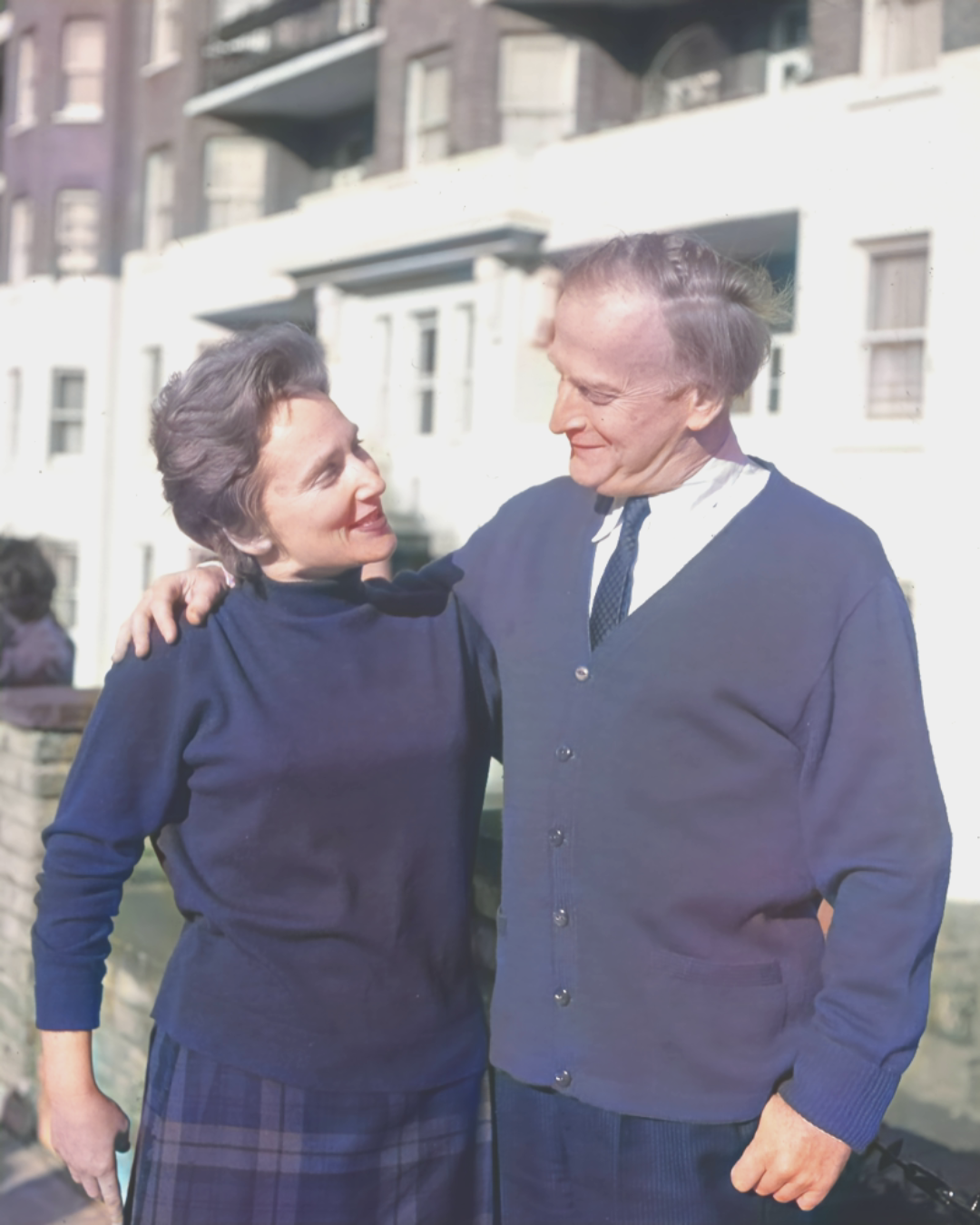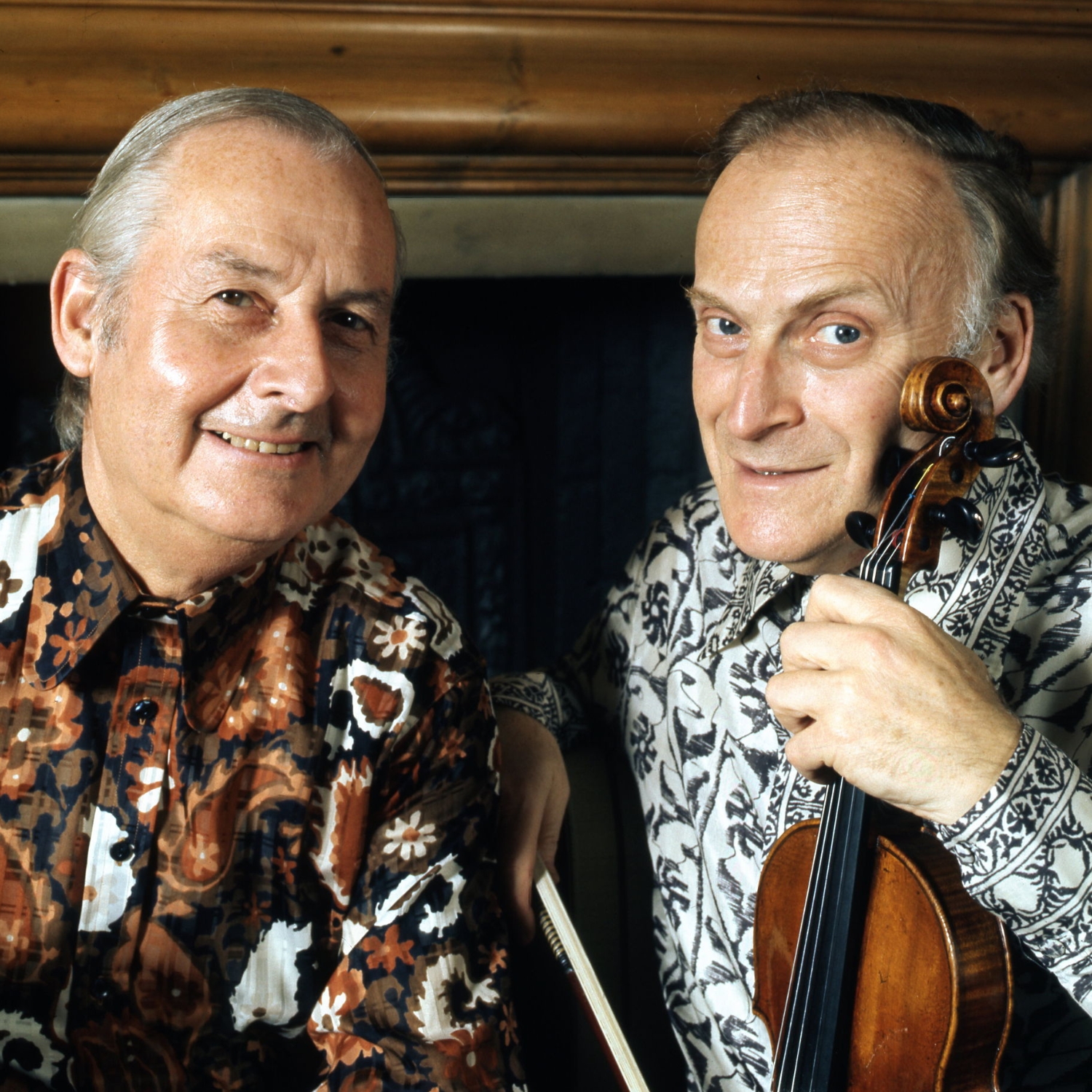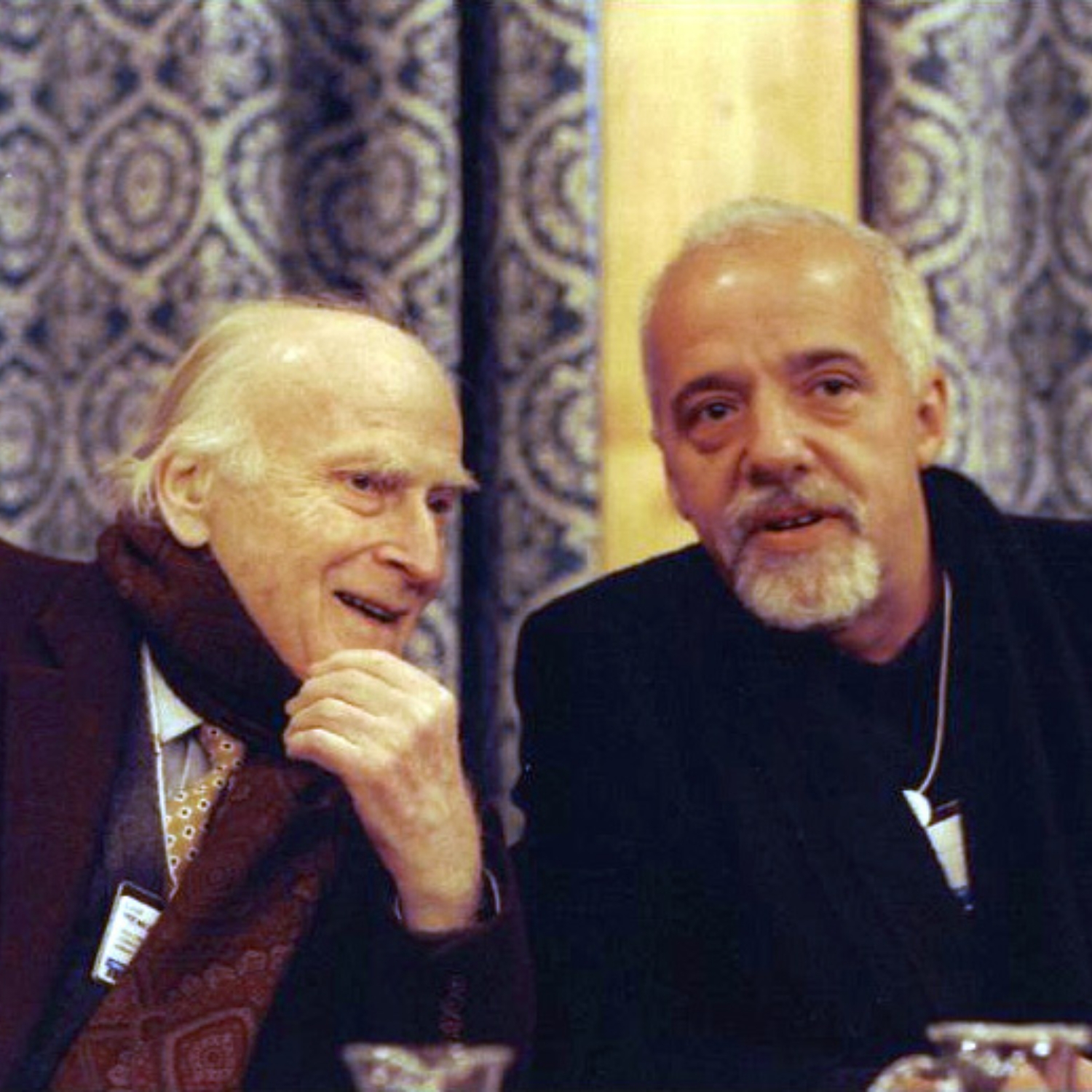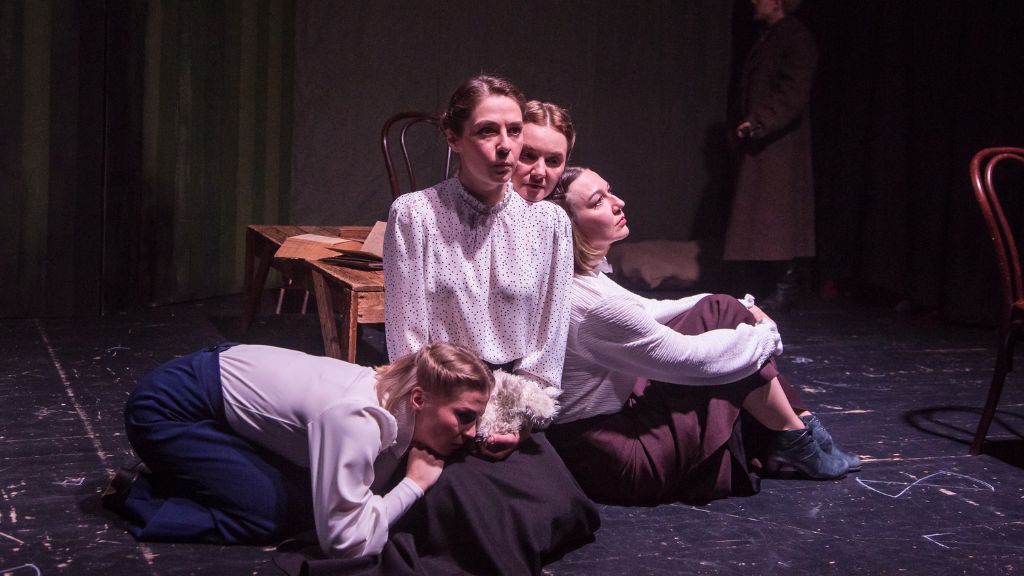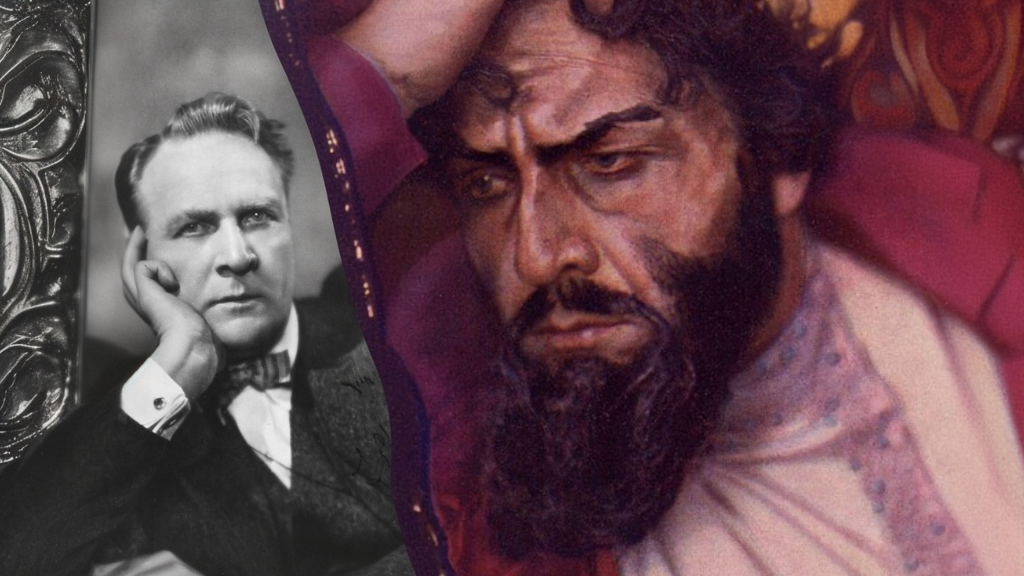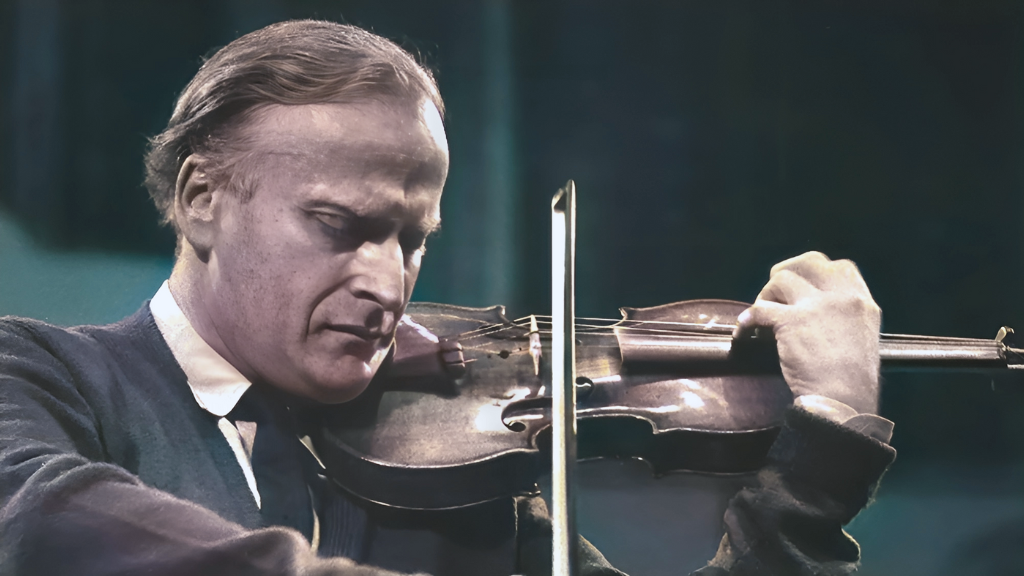
Yehudi Menuhin in London: prodigy, violinist and goodwill ambassador
Yehudi Menuhin was the greatest violinist of the 20th century, holder of honorary doctorates from twenty different universities, including Oxford and Cambridge, a goodwill ambassador, and an art activist. In 2023, a blue memorial plaque was installed in London in his honour, helping to preserve the memory of this outstanding individual. Afisha.London magazine discusses how the musician gained fame, immigrated to the United Kingdom, and became one of the most influential figures in British culture.
The Prodigy’s Confession
Yehudi Menuhin was born on April 22, 1916, in New York, but his parents, who were Jews by nationality, originated from the Russian Empire. His mother, Marutha Sher, was born in Yalta, while his father, Moshe Mnuchin, was the son of a rabbi from Gomel. They left their homeland as children before the 1917 revolution and after numerous relocations, ended up in the USA. In 1918, the family moved to San Francisco and upon acquiring American citizenship, they changed their surname to Menuhin.
At the age of three, the boy was found to have a perfect pitch, and he began to study music, with his parents’ support. In the documentary film “Yehudi Menuhin: The Violin of the Century,” the musician recalls that his mother was a proponent of discipline: young Yehudi had a strict daily routine — violin lessons, walks, and breaks for meals. He took it in stride, already aware of his important mission: “Just a kind, good routine. If you want to play the violin, you have to work. After all, if someone wants to be able to do something and loves this activity, they must do it every day. For an artist, it’s as natural as flying is for a bird.”
- Yehudi Menuhin and Charlie Chaplin. Photo: ©Roy Export Establishment, ©Menuhin Trust (Warner Classics)
- 12-year-old Yehudi Menuhin with his Stradivarius violin “Prince Kevenhüller” (1733). Photo: Lumière, Public domain, via Wikimedia Commons
At seven, Menuhin gave his first concert as a solo violinist with the San Francisco Orchestra, and at nine, he made his debut on the stage of the opera theatre in New York and set off to conquer Europe. Newspapers competed in praising the young genius, who performed concerts by Bach, Brahms, and Beethoven with virtuosity. Later in an interview, Yehudi admitted that he felt awkward in front of his experienced teachers — for his performance, he received a fee far exceeding their earnings.
- Photo: ©Yehudi Menuhin Trust (Warner Classics)
- Young Menuhin surrounded by girlfriends. Photo: ©Roy Export Establishment, ©Menuhin Trust (Warner Classics)
At the age of fifteen, Menuhin was acknowledged as a master and began performing with his sister Hephzibah, who accompanied him on the piano. Interestingly, besides Europe and the USA, Menuhin was also greeted with ovations in various corners of the planet: in South Africa, Australia, and New Zealand.
Read also: Exploring Malevich: Locations and Insights into His Revolutionary Art
With the onset of World War II, the young Yehudi felt it was his duty to support the morale of the Allied forces — his music became a weapon against fascism. At the end of his performances, the musician always played “Ave Maria,” helping soldiers to find hope in eternal justice. From 1942 to 1945, he gave hundreds of concerts for soldiers in Europe and America, and after the war, he went to Moscow, where he performed a Bach concerto in a duet with the Soviet violinist David Oistrakh. This concert was called the main musical event of the last hundred years.
- Yehudi and Hephzibah Menuhin. Photo: © Gerry Zwirn, Lotte Meitner-Graf, Paul J. Hoeffler, ©Menuhin Trust (Warner Classics)
- Yehudi and Hephzibah Menuhin. Photo: © Gerry Zwirn, Lotte Meitner-Graf, Paul J. Hoeffler, ©Menuhin Trust (Warner Classics)
Great Britain arrival
The post-war period brought changes to Yehudi’s personal life. In 1938, the musician married Nola Nicholas — the daughter of an Australian industrialist. By 1947, their marriage, like the old pre-war world, was destroyed, but Menuhin had already found new love — the British singer and ballerina Diana Gould.
- Blue plaque in London. Photo: Spudgun67, CC BY-SA 4.0, via Wikimedia Commons
- Yehudi and Diana Menuhin through the lens of Yevonde (1957). Photo: Mary Evans Picture Library (colour correction Afisha.London)
Incidentally, Yehudi humorously confessed that before Diana, he had been in love with a ballerina — the “Russian Swan” Anna Pavlova. Menuhin frequently visited London for concerts, where he performed at the Royal Albert Hall, and thus he knew many local stars, among whom Pavlova shone brightly. Anna was even acquainted with Diana and once described the girl as “the only English dancer who has a soul.”
Feminine and uninhibited in dance, especially in the gypsy style, Diana captured Yehudi’s heart and remained there until the end — they walked the musician’s further life path together. In 1959, the couple settled in Great Britain: they chose Highgate — an elite area in North London. In the 1960s and 1970s, they lived at 2 The Grove, a house later owned by the singer Sting.
The couple had two boys, while a third died shortly after birth. The Menuhin heirs later became famous, though in the case of one of the sons, the fame was rather notorious: Gerard became a right-wing activist and Holocaust denier, whereas Jeremy became a composer.
- Photo: © 1984 Irving Penn, courtesy Vogue
- Photo: © IYMF 2020 (colour correction Afisha.London)
On Guard for Young Talents
Interestingly, unlike Yehudi, Jeremy’s artistic parents did not provide him with a musical education in his childhood. It was the boy’s nanny who, noticing his active interest in music, helped organize his musical training. Yehudi began to focus on his son’s career when Jeremy’s talent became evident.
Then, the boy started learning from the best teachers — he studied composition with Nadia Boulanger in Paris and piano with Mindru Katz in Israel, and he learned conducting from Hans Swarovsky in Vienna. Jeremy’s debut took place in London when he was 15 years old — on the fiftieth anniversary of his famous father, he performed with the London Philharmonic Orchestra.
- Yehudi and Hephzibah Menuhin. Photo: © Gerry Zwirn, Lotte Meitner-Graf, Paul J. Hoeffler, ©Menuhin Trust (Warner Classics)
- Yehudi and Hephzibah Menuhin. Photo: © Gerry Zwirn, Lotte Meitner-Graf, Paul J. Hoeffler, ©Menuhin Trust (Warner Classics) / colour correction Afisha.London
In 1963, an important event for British culture and for Menuhin himself occurred — he founded his own school, inspired by a long-ago trip to Moscow, where he had performed with David Oistrakh. During that visit in Moscow, he visited the Central Music School, after which the idea of organizing his own international school haunted him, although it took nearly two decades to realize it.
Read also: Innovator and romantic Vladimir Nabokov in Britain
The co-founder and first director of the school was Menuhin’s colleague and friend, Marcel Gazelle. Today, this educational institution successfully operates in Surrey and is known as a forge of outstanding musicians. Among the school’s alumni are the British violinist Nicola Benedetti, who became one of the most sought-after musicians of the 21st century, and the British-Russian Alina Ibragimova, who was awarded the Order of the British Empire in 2016 for services to music.
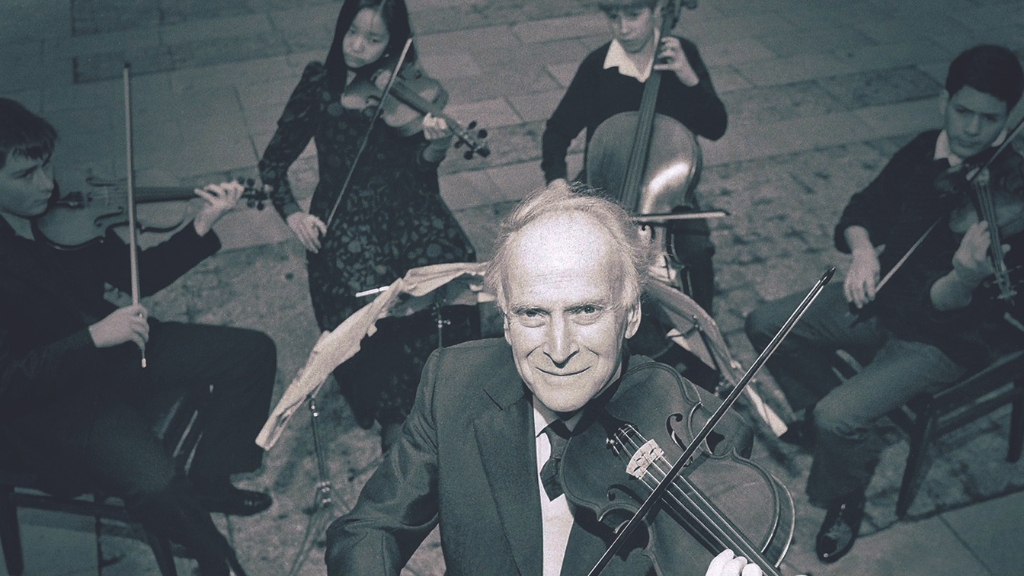
Yehudi Menuhin with his students. Photo: Yehudi Menuhin School
Royal Recognition and British Citizenship
In 1985, Menuhin was granted British citizenship, allowing him to officially use the knighthood bestowed upon him by Queen Elizabeth II nearly 20 years earlier. On this occasion, Menuhin stated that since he was an American, he would not use his title in the USA and Switzerland, where he had a home. The musician also found it amusing that in Great Britain, he was called Sir Yehudi.
In 1993, Menuhin accepted the title of life peer and the title of Lord Menuhin of Stoke d’Abernon in the County of Surrey — these titles were beneficial as they elevated the status of his international school. Over his four-decade career in Great Britain, Menuhin became an integral part of British history.
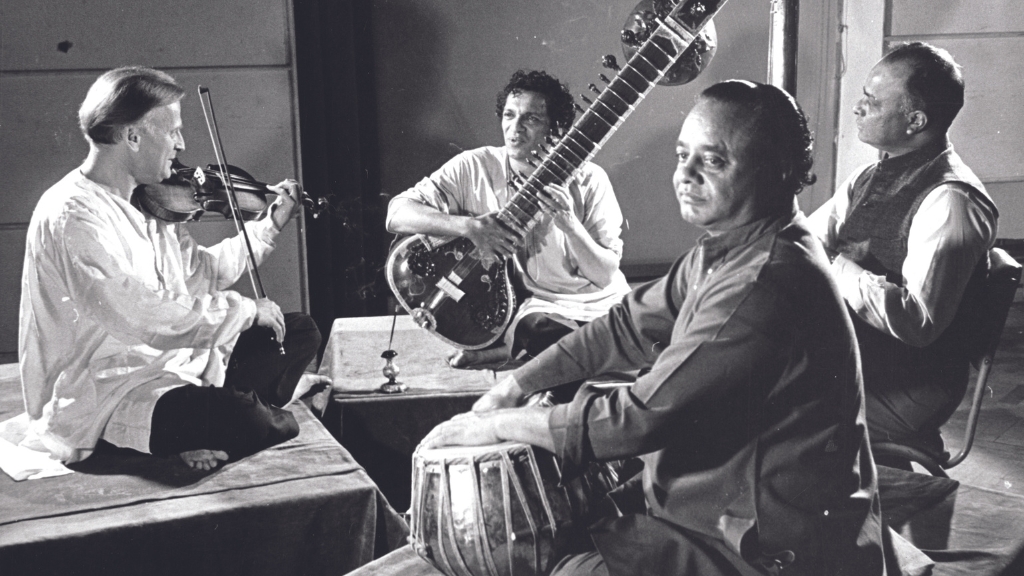
Yehudi Menuhin and Ravi Shankar, Indian musician and sitar virtuoso. Photo: Reg Wilson, Menuhin Trust (Warner Classics)
He was the first musician to have the honour of performing a solo concert at St Paul’s Cathedral in London in the presence of the Queen Mother, Elizabeth Bowes-Lyon, and the celebration of Menuhin’s eightieth birthday, which took place at Buckingham Palace, was led by then-Prince Charles — the current King Charles III.
Read also: How Diaghilev’s “Saisons Russes” influenced the European art world of the 20th century
Menuhin was actively involved in yoga — it was through his initiative that the world learned about the influential yogi B.K.S. Iyengar, for whom the musician organized all conditions for teaching outside India: in London, Switzerland, and Paris.
Yehudi was one of the first environmentalists — when electric cars appeared in London, he immediately acquired one, although the car was not the most convenient to use. With his support, a shop selling organic products was opened in central London, and in 1992, the musician was appointed a UNESCO Goodwill Ambassador.
The musician actively participated in BBC programmes, wrote for The Times newspaper, and received a vast number of awards from various British organisations. Menuhin frequently interacted with other famous emigrants: for example, in June 1962, at the annual music festival in Bath, he performed a solo sonata by Bartók for Kenneth MacMillan’s ballet “Serenade”, featuring Margot Fonteyn and Rudolf Nureyev, to whom we dedicated an article earlier.
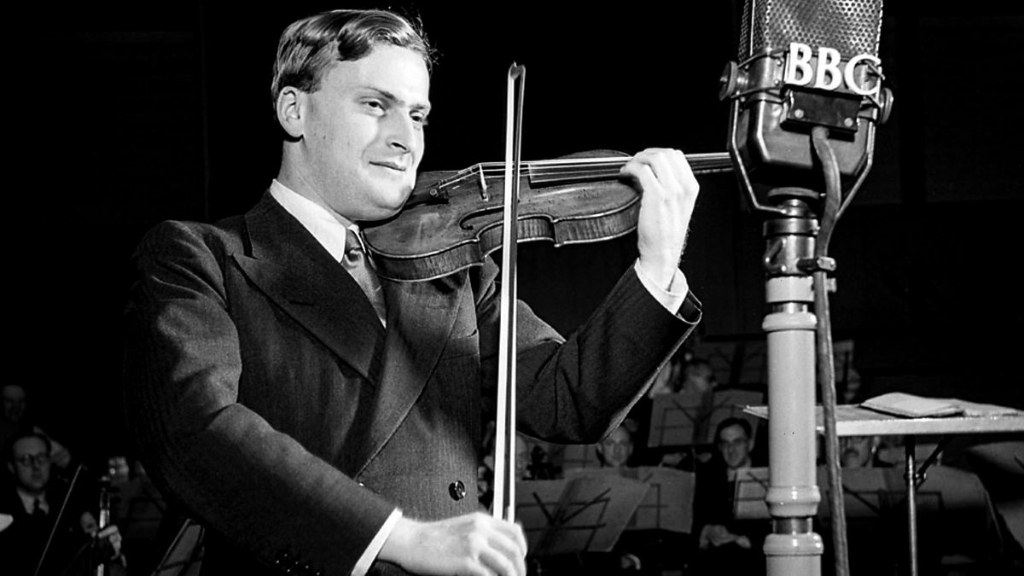
Photo: BBC
The magnificent journey of the musician ended on March 12, 1999, in Berlin, at the age of 82. Menuhin was buried on the grounds of the school he founded in Surrey. The artistry of this virtuoso violinist is immortal, while the fruits of his phenomenal work in the cultural sphere are still reaped by generations: his school continues to produce remarkable musicians, and the Yehudi Menuhin International Competition for Young Violinists, co-founded with Robert Masters, today stands as one of the best global forums for young talent.
- Yehudi Menuhin with French jazz violinist Stéphane Grappelli (1976). Photo: Allan warren, CC BY-SA 3.0, via Wikimedia Commons
- Yehudi Menuhin and Paolo Coelho at the International Economic Forum in Davos, Switzerland (1999). Photo: World Economic Forum from Cologny, Switzerland, CC BY-SA 2.0, via Wikimedia Commons
In 2000, the British publishing house Faber released the book “Yehudi Menuhin: A Life” by Sir Humphrey Burton, in which the author explores the life and creativity of the highest-paid musician of the pre-war era. Meanwhile, in 2023, in memory of Menuhin’s contributions, the charity English Heritage installed a memorial plaque on the wall of the house in Belgravia, where the maestro spent the last 16 years of his life.
Irina Lazio
Cover photo: www.warnerclassics.com (colour correction Afisha.London)
Читайте также:
Lewis Carroll in 19th-Century Russia: Monasteries, Theatres and Russian Shchi
Nicholas II and George V: A History of Friendship and Duty
Dostoevsky in London and his influence on the British classics
SUBSCRIBE
Receive our digest once a week with quality Russian events and articles

